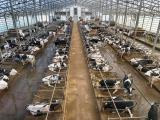Mar 30, 2012 (CIDRAP News) – A federal advisory board today reversed its stance on publishing two controversial H5N1 transmission papers today, recommending that both studies be published in full.
The National Science Advisory Board for Biosecurity (NSABB) met yesterday and today to discuss revised versions of the studies by two groups, one from the University of Wisconsin, Madison, and one from Erasmus University in the Netherlands.
Both studies were funded by the National Institutes of Health (NIH), and, as its dual-use advisory board, the NSABB in December recommended redacting the studies due to bioterror concerns and the risk of an unintentional release of the viruses used in the two ferret studies.
The two journals that slated to publish the studies, Science and Nature, have held off on running the papers based on the NSABB's nonbinding recommendation, which the NIH agreed with in December.
In a statement released today, the NSABB said it unanimously recommended that the revised manuscript by the University of Wisconsin group, headed by Yoshihiro Kawaoka, DVM, PhD, be published in full, and members voted 12 to 6 that the data, methods, and conclusions in the revised paper by the Erasmus group, headed by Ron Fouchier, PhD, be published.
Today's action by the NSABB follows yesterday's launch of a new government policy on the oversight of federally funded life sciences dual-use research. The new policy requires federal agencies to routinely review the risks of research conducted on 15 "high consequence" pathogens and toxins, including highly pathogenic H5N1 avian flu.
In its statement, the NSABB said it strongly supports free communication of research information unless it poses significant and immediate risks to public health and safety. "While the communication of information in these manuscripts still presents dual-use concerns, the additional information changed the board's risk-benefit calculation," it said.
More specifically, the board said that data in the revised manuscripts don't appear to provide information that would immediately enable misuse in ways that would threaten public health. The NSABB also said new evidence has emerged that "underscores the fact that understanding specific mutations may improve international surveillance and public health and safety." The group did not elaborate on the new evidence.
"Global cooperation, critical for pandemic influenza preparedness efforts, is predicated upon the free sharing of information and was a fundamental principle in evaluating these manuscripts," the NSABB added. It concluded, "The NSABB recommendations from this meeting will be forwarded to the US Government for review and consideration."
The board noted that its recommendations were informed by the new dual-use oversight policy that was announced yesterday. The group emphasized that better processes for responsibly communicating dual-use research urgently need to be developed.
On Apr 3 and 4 a Royal Society conference in London will address various aspects of the H5N1 research issues, and the World Health Organization (WHO) has said will host a second meeting on the H5N1 issues in the middle of the summer.
In a response to a query by CIDRAP News, Keiji Fukuda, MD, the WHO's assistant director-general for health security and environment, said, "Since the NSABB recommendations are to the secretary of HHS [Health and Human Services] and director of NIH and they have not indicated what they will do, I don't have any comments at this time."
Kawaoka's team combined the hemagglutinin from an H5N1 virus with other genes from an H1N1 virus and found that the hybrid could spread in ferrets via respiratory droplets, though it did not kill any of them.
Fouchier's group used genetic engineering and passaging through ferrets to generate an H5N1 virus that spread via the airborne route among ferrets. Accounts of the virus's lethality have differed somewhat, but it was at least lethal to ferrets with deliberate tracheal inoculation at high doses.
Earlier this week during a live episode of "This Week in Virology," a podcast hosted by virologist Vincent Racaniello, PhD, from Columbia University, Fouchier said his group and Kawaoka's team found some of the same mutations. "That was a shock to me and to Yoshi," he said.
See also:
Mar 30 NSABB statement
Mar 29 CIDRAP News story "US debuts life sciences dual-use research policy"
















